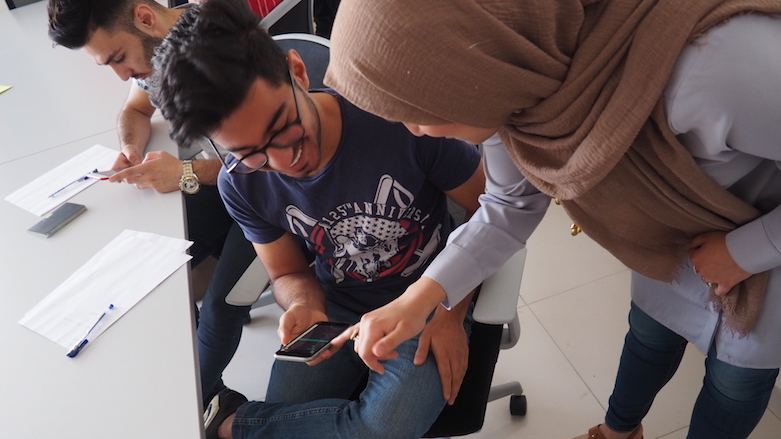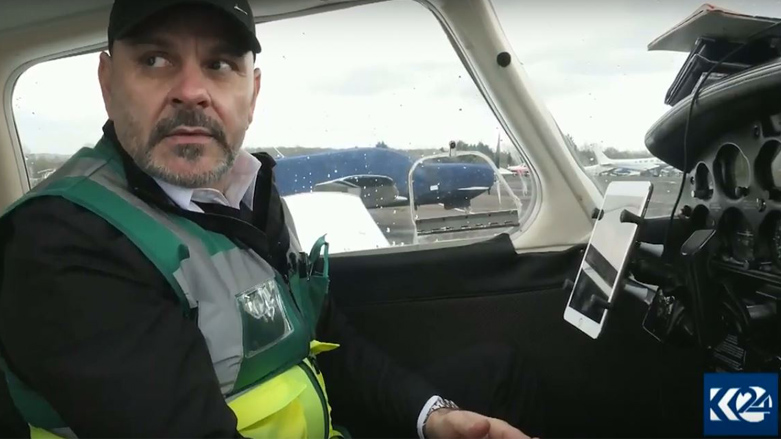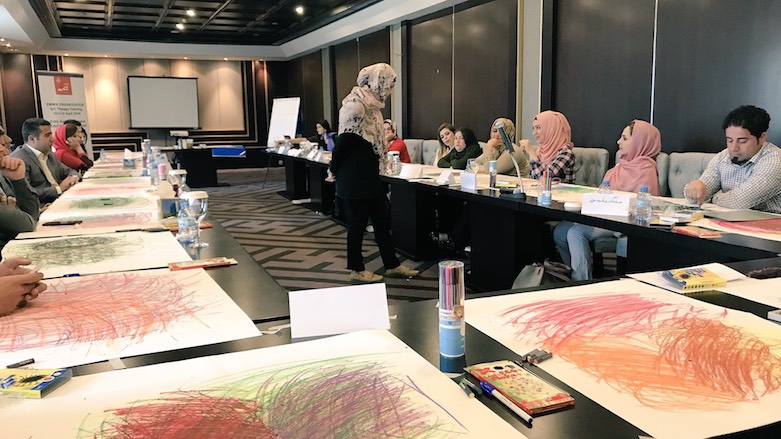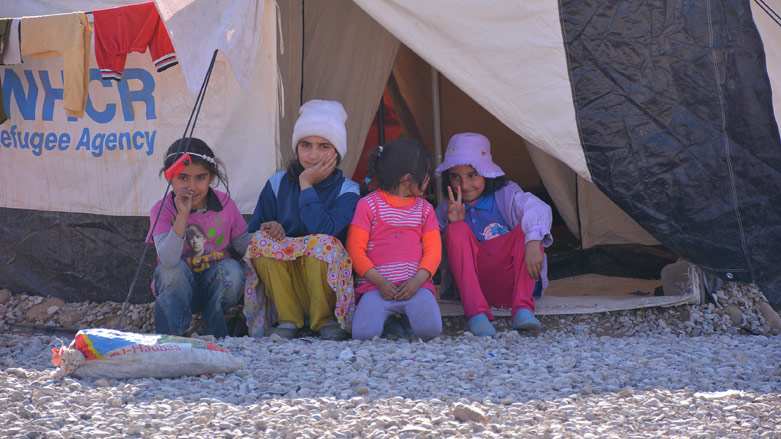Is teaching computer coding humanitarian aid? This NGO's staff think so

ERBIL (Kurdistan 24) – Earlier this month, some 30 young men and women with interest in information technology gathered on the second floor of a chic Erbil plaza for their first meeting at what IT savvy people call an Android programming boot camp.
They were mostly Kurdish youth, students from different colleges who complained they did not receive an adequate education at their public schools and came here to have a better chance of getting trained in computer programming or coding.
An energetic, small team of young international professionals who hope to make a difference for people in conflict-affected countries welcomed them.
Ehsan Mamakani Shikak, a computer engineer, and project assistant at Re:Coded, a US-registered NGO that is providing the training, tells the new tech cadets that the staff aims not only to teach how to code but also how to build a community.
In the past several years, the intertwined and internationalized civil wars in Iraq and Syria created the biggest refugee crisis humanity has seen since the Second World War ended over seven decades ago.
A mass exodus of over some—according to UN figures—ten million IDPs, refugees, and economic migrants flocked into neighboring Mideast countries and Europe, leading to further societal and political upheavals in host countries.
Scores of humanitarian organizations are since working to meet the needs of those in need.
In the Kurdistan Region, aid groups providing basics such as food, shelter, and education to people in refugee camps are easy to spot.
Re:Coded stands out from the crowd due to its claim of a radically new approach in what constitutes humanitarian aid: IT.
“Our main mission is to grow the tech sector in Iraq and Kurdistan and help our students become tech leaders in the country,” Zahra Shah, the project manager who is from London tells Kurdistan 24.
This, Shah says, is a way to create jobs and expand students’ skill sets for an IT-dominated future.
“We [hope] they can stand on their feet, start leading the economy in different ways, and not always have to rely on local opportunities for jobs. This is something they can work on remotely, as developers,” she adds.
Global brands such as Google, Slack, Microsoft, Flatiron School, a software engineering education organization, Udacity, and German Corporation for International Cooperation (GIZ) sponsor Re:Coded.
Trainees can borrow laptops donated by other companies to use for coding.
When asked how their work is humanitarian aid, Shah explains that they are providing “long-term” skills that recipients can use in the future.
“We and our co-founders Alexandra Clare, Marcello Bonatto, have worked with the UN, for traditional NGOs. We all know the flaws in that system. It takes a lot of money to provide aid, and that aid is a very short term. Whereas we provide [those in need] with skills they can use in 10 years from now,” she continues.
The NGO that began its Kurdistan operations in 2016 gave training in 2017 to refugees from Syria and Iraqi IDPs in camps surrounding Erbil.
One of Re:Coded’s technical leads, a coding trainer, Shereen Messi is a refugee from the town of Kobani in Syrian Kurdistan (Rojava).
Messi has taught refugees like herself in sessions in the Kawragosk and Qushtapa camps which house refugees from Rojava.
They are planning to expand into Duhok, Sulaimani, and Baghdad.
At the current boot camp in Erbil, at least 50 percent are either IDPs or refugees, and they also have a requirement of involving more women with a quota of 40 percent.
This summer, the group will also be piloting a tech-entrepreneurship academy for youth interested in IT business and a free-lancing academy to teach students how to code remotely and independently for Internet companies.
Asya Saeed is a 21-year-old participant in the course, studying at Erbil’s Salahaddin University’s software department.
“I applied to Re:Coded to become a real developer. I aspire to become a programmer working with international organizations. And Kurdistan needs start-ups. We are sadly backward in that field. It is very important for us to take strides here.”
Editing by Karzan Sulaivany



